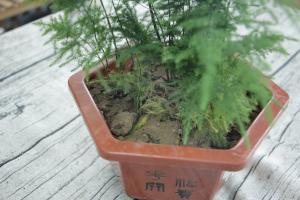Can I Plant Trees on Property Line?
Planting trees is a popular way of adding beauty to your yard and providing shade during hot summer months. However, if you are unsure of where the property lines lie, planting trees can easily become a legal issue. In this article, we explore the legality of planting trees on property lines.
What are Property Lines?
Property lines are the boundaries that separate two pieces of land. They can be marked with a physical barrier such as a fence, or they can be based on surveyor's records. Property lines are important since they dictate how far apart two structures can be, where one person's land ends, and where another person's begins.
What are the Legal Considerations in Planting Trees?
Before planting trees on your property line, you need to understand the legality of such actions. Generally, you are allowed to plant trees that grow on the side of your property as long as they stay on your side. In other words, trees that are close to the property line and extend to your neighbor's side may bring about legal concerns.
Furthermore, some states have laws that prevent you from planting certain trees on property lines. Such trees may include fruit trees that cause excessive debris on your neighbor's land or trees with roots that can damage your neighbor's property.
What are the Risks of Planting Trees on Property Lines?
Planting trees on property lines can introduce potential risks that require careful consideraion. If a tree falls on your neighbor's property and causes damage, they could sue for compensation. Property damage can include damage to a house, car, or other structures. In such cases, you may be held liable for the damages the fallen tree has caused.
If you are considering planting trees on your property line, it is a good idea to speak to your neighbor before proceeding. By communicating with them, you can establish an open and honest line of communication regarding your plans, and minimize the risk of legal conflicts later on.
Conclusion
When planting trees on your property line, it is important to consider the legal implications and potential risks. While you are allowed to plant trees on your side of the property, trees that encroach on neighboring properties can be a legal issue. Before planting trees, ensure that you understand the legal requirements and, if necessary, consult with a professional to guide you through the process.

 how many times do yo...
how many times do yo... how many planted tre...
how many planted tre... how many pine trees ...
how many pine trees ... how many pecan trees...
how many pecan trees... how many plants comp...
how many plants comp... how many plants can ...
how many plants can ... how many plants and ...
how many plants and ... how many pepper plan...
how many pepper plan...































